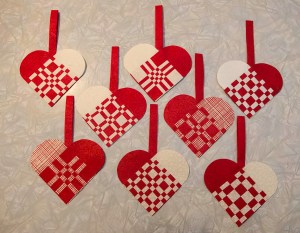
When “mad about you” aired in the Greek TV, – I think it was on the Antenna TV network- I didn’t pay attention to it at all. I mean I was too young to understand about how relationships work, especially between husbands and wives. I was just not interested in it. Though Helen Hunt got famous by this sitcom in the late 90ies, for me it was a TV sitcom totally forgotten. A few months ago we were thinking with my partner which series we would like to watch and I saw an instagram story about the sofa the married couple of Paul and Jamie Buchman wanted to buy, uploaded by my favorite blogger named “hooked on houses”. And so I started to watch the sitcom.
Mad About You was a NBC sitcom mainstay in the 1990s. It followed the lives of Paul and Jamie Buchman (the leading parts were Paul Reiser and Helen Hunt), newlyweds living in New York City. It ran for seven seasons (1992 1999) and it won a dozen Emmy Awards. It introduced most of us to Helen Hunt, who won 4 times the Emmy Award. It also had a great supporting cast that included among many others, John Pankow (cousin Ira), Lisa Kudrow (waitress Ursula), Richard Kind (Dr.Mark Devenah), Leila Kenzle (Fran Devenah), Ann Ramsay (Lisa the sister of Jamie) and Hank Azaria (Nat the guardian og Marray the dog).
It’s a show about family but they don’t have a baby until about season 5 of the show’s run. It could be a workplace show for periods of time as Paul made movies and Jamie worked in public relations. And this work involvement of the couple provoked a crisis in their relationship. That’s why they started a therapy for couples. It’s also a show about a couple dealing with fertility issues. Actually it’s s a sitcom about how marriage can be through phases. In the very first episode Paul and Jamie had a small fight and Jamie said: “Is the marriage so hard? It’s supposed to be different than this” and Paul answered:” Says who? It is supposed to be like this. I asked everyone around. There is always stuff. I put up with your crap, and you put up with mine”. And another quote from the third episode where the couple couldn’t make a decision about how to spend their Sunday together, so in the end when the couple relaxed on the sofa Jamie said :” Am I boring you?” and Paul said:” Of course not. I got you, I got potato chips how much better could it be!”
The two actors had a magical chemistry together on the set. They were so great in physical comedy as well. In the last season the couple after their therapy session, the therapist challenged them not to speak to each other for a whole day so as to concentrate on each other’s body language and communicate better in this way. The episode was so funny because Reiser and Hunt acted in silence while the other cast talked normally.
For me it is not only one funny TV show, it’s also a study of how couples could get along and if not why this happens. Furthermore the sitcom raises issues about how the parents get involved in the lives of the couple, about work problems and friendships.
Over the course of 164 episodes, the show managed to be more than the sum of its parts. Overshadowed by the immense success of Friends, Mad About You offered an update to the sitcom form. While it wasn’t revolutionary, what the cast and crew did with the show was a more subtle, more nuanced and more formally dynamic show than most of the family sitcoms on the air – then and since. Like a lot of shows, it would have been twice as funny if they made half as many episodes, but the show managed something rare. The people behind Mad About You accepted the guidelines for what a network sitcom was, and then it managed to tweak, play with, and subvert every single rule except one – to be funny. I read that it’s gonna be a reboot of the show in the end of 2019 and they have promised that it’s gonna be funny. Even if I don’t like the revivals maybe this one will be a good one!
If you haven’t watched the episodes yet, do that. If not blow your minds, it will surely make you laugh!













